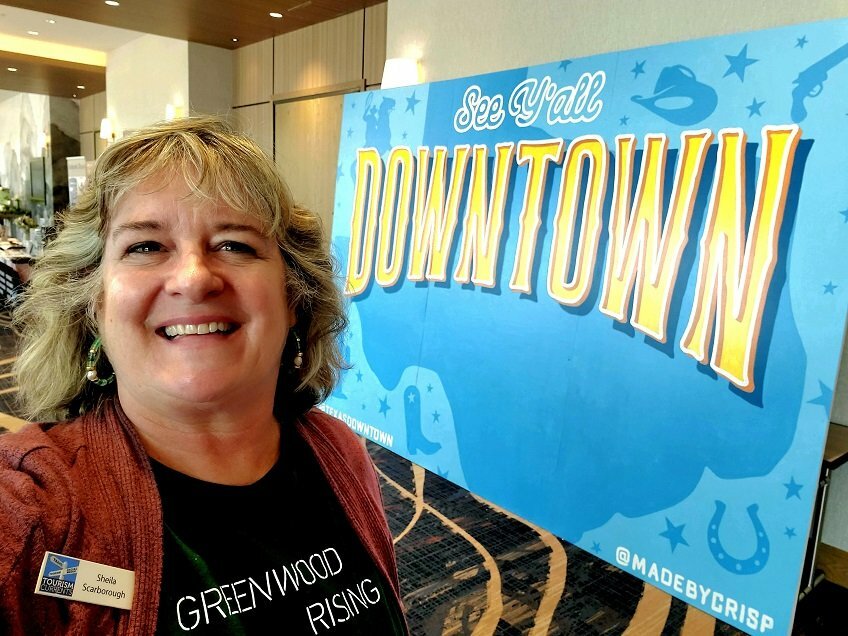Balance
Recently at work I got two somewhat related questions from two different mentees:
- How do you keep up with it all? You’re everywhere!
- Would love to know some time… what keeps you going?
Before I dive into my answers, I should do a few disclaimers. As a formality, these opinions are my own and do not represent those of my employer. I have almost 20 years of experience as a full-time software engineer, entirely at two companies, with another 10 years or so of varied computer and coding experience before that. This is what works for me, a privileged straight white dude, and is definitely not intended as one-size-fits-all advice… so with all that non-universality out of the way hopefully you’ll still find something in here useful.
Really it all comes down to managing my time to prioritize family and to keep work notifications at bay.
Keeping Up
I think the first question was rooted in the illusion that I’m in every meeting and responding to every Slack or email thread. I’m really not! In fact it’s very important at the level of senior engineer and beyond to scale yourself by delivering through others. I know what I can skip in part because I know who I can trust to represent my point of view when I’m unavailable.
I’m also not overworking — it’s very rare that I’m working more than 40 hours (except maybe when I used to be oncall; looking at you, log4j week). I do often time shift to address some work early or late in my time zone which reserves time for the occasional school event, work lunch, or most days, family evening time.
The informal technique I’ve converged on is more or less just aggressive message triage. I tend to read via “pull” (that is, when I have time to catch up, I skim through all of my recents) as opposed to “push” (responding to messages as they come in). It’s a bit of an Inbox Zero Lite, and more aligned with Merlin’s more recent thinking. I don’t fully read everything, but I look at it enough to decide if it needs more of my attention.
If I miss something with this method, and it’s important, it will come back; I apologize for the miss, check for technique corrections, and move on. I also note that I do not use any kind of generative AI summarization for handling any of this load; the risk of missed or non-existent facts appearing in the summarization is too much of a risk.
Email
For email I have over 100 rules defined; many of them delete automatic emails that are near realtime status updates for information I can get elsewhere. Mostly my work email is for meeting invites and related prep work or follow up. It’s rare for an email to require a longer written response; if one is required I’ll set aside time to write that, since it’s likely to be a bigger cross-team escalation anyway where attention to detail is important.
I also don’t allow email to my phone, just my synced calendar.
Meetings
Almost every meeting I’m in is hybrid, between people working in different offices in different time zones, time shifted commutes, and occasional sickness. For meetings, I apply several different techniques:
- Meetings with people that are harder to schedule usually win
- I run weekly office hours with three 20 minute slots for people to sign up for; this concentrates smaller topics
- I try to batch my 1:1 sessions on the same day (often Thursday) to avoid too much context switching
- I have calendar blockers set up to at least attempt to manage my commute times
- I tend to accept useful but non-critical meetings as Tentative to indicate that other topics could win out
- I do No Meeting Wednesdays when the current project phase allows
- I try to schedule review meetings weeks out, and the scheduled meeting becomes the due date for any investigation work or writing
I do wish there was a more automated way of handling my scheduling heuristics because it seems like something a computer could rebalance for me a few days ahead, the way I do manually at present.
Documents
Amazon is a narrative writing company, so a lot of documents come my way. Often these are coupled to a review meeting, so for the most part I read them as part of the meeting. Sometimes there will be a quick follow up review via email or Slack; instead of responding to those notifications right as they come in, I try to set aside reading time at the start and end of my day where I can quickly empty that “inbox” and get feedback back to the writers. Some document questions come to my office hours.
Slack
For Slack, I use the Unread view as my primary interface. (I was initially very skeptical of the newer cards interface on mobile; I’ve come to like it, other than the way it handles loading long threads.) I have my many many channels sorted and grouped so that the priority order is more or less:
- Direct Messages
- Threads
- Current Project(s)
- Related Projects/Teams
- Org
- Role
- Company
- Interests
Usually I just mark as read anything that isn’t relevant to me or for which I see a more appropriate person is already engaged. For the rest it’s a lot of open discussion, leading to a decision, a longer doc write up, or a meeting.
I do let Slack send me notifications, but only during the work day, and generally that is just a volumetric indicator (unless it’s from a few select people or an update from a meeting that’s about to happen, like switching conference rooms).
Posting
I think a lot of what helps me keep up is that I’m a fast reader and good writer; some of that might be the luck of some innate brain stuff but more likely it’s just lots and lots of practice, with some native English speaker and neurotypical privilege thrown in. I do think my primarily online socializing helps me here; I’m often quickly consuming text and deciding what’s interesting enough to engage with or not. I know how to post and how to consume and those skills are surprisingly work relevant in today’s office environment.
Keeping Going
The second question is more open ended and can be interpreted in a few ways. I heard it as “what gives you energy”, and more about what I do when not at work to recharge. (It does help that, in spite of the meeting load I whine about sometimes, the work remains full of interesting problems to solve while working with really skilled people.)
I think one part of it I alluded to earlier, which is that I prioritize family time, especially in the early evening after work. We might chat about our day over dinner, fit in a game, listen to some music, or check through some homework together.
There are of course days where I don’t feel like I have the juice to make one more decision; that’s where another part comes in. I really find household chores to be a good way to “reset” my brain. There’s something about the scope of the task, following a procedure, and achieving a result in a few minutes that gets me the right dopamine hit or something. Usually my duties include folding laundry (or sorting and starting a new load) or loading the dishwasher and cleaning the kitchen after dinner. As you may have noted from other posts here I cook sometimes, which is usually similarly relaxing.
There’s obviously some privilege built into this around being more career established and setting boundaries on my work time, and working in an industry with more flexible scheduling. I also have the added support of my wife being a writer and stay-at-home parent; she takes care of many things (often with spreadsheets) which helps us balance our various home and pet and child care tasks.
In terms of “me time”, catching up with friends online, playing games, and reading tend to be my main entertainments when we’re not doing things all together.
Keeping On
That’s a little bit of what works for me to keep going and keep up with all of the information that flies my way.



